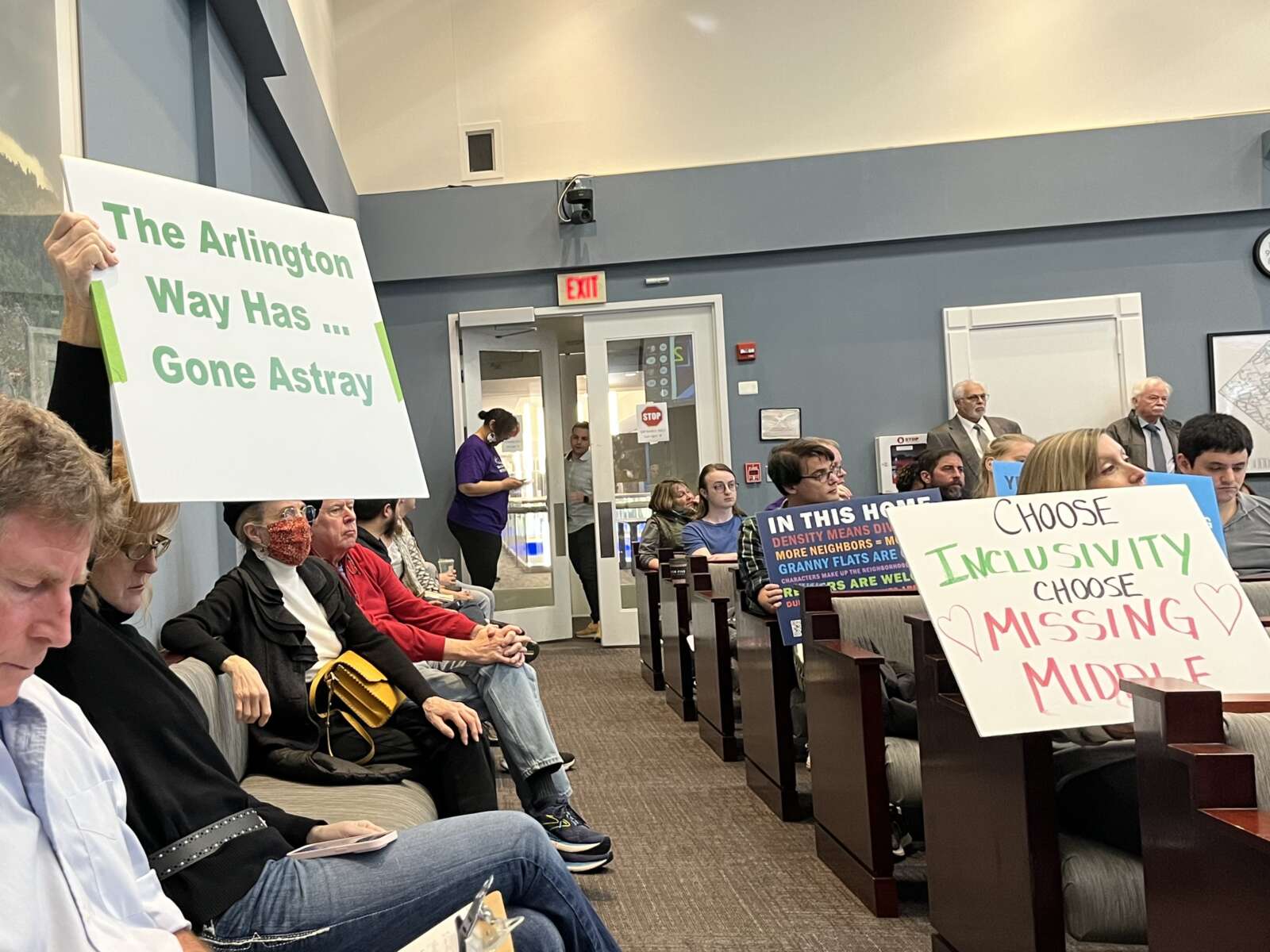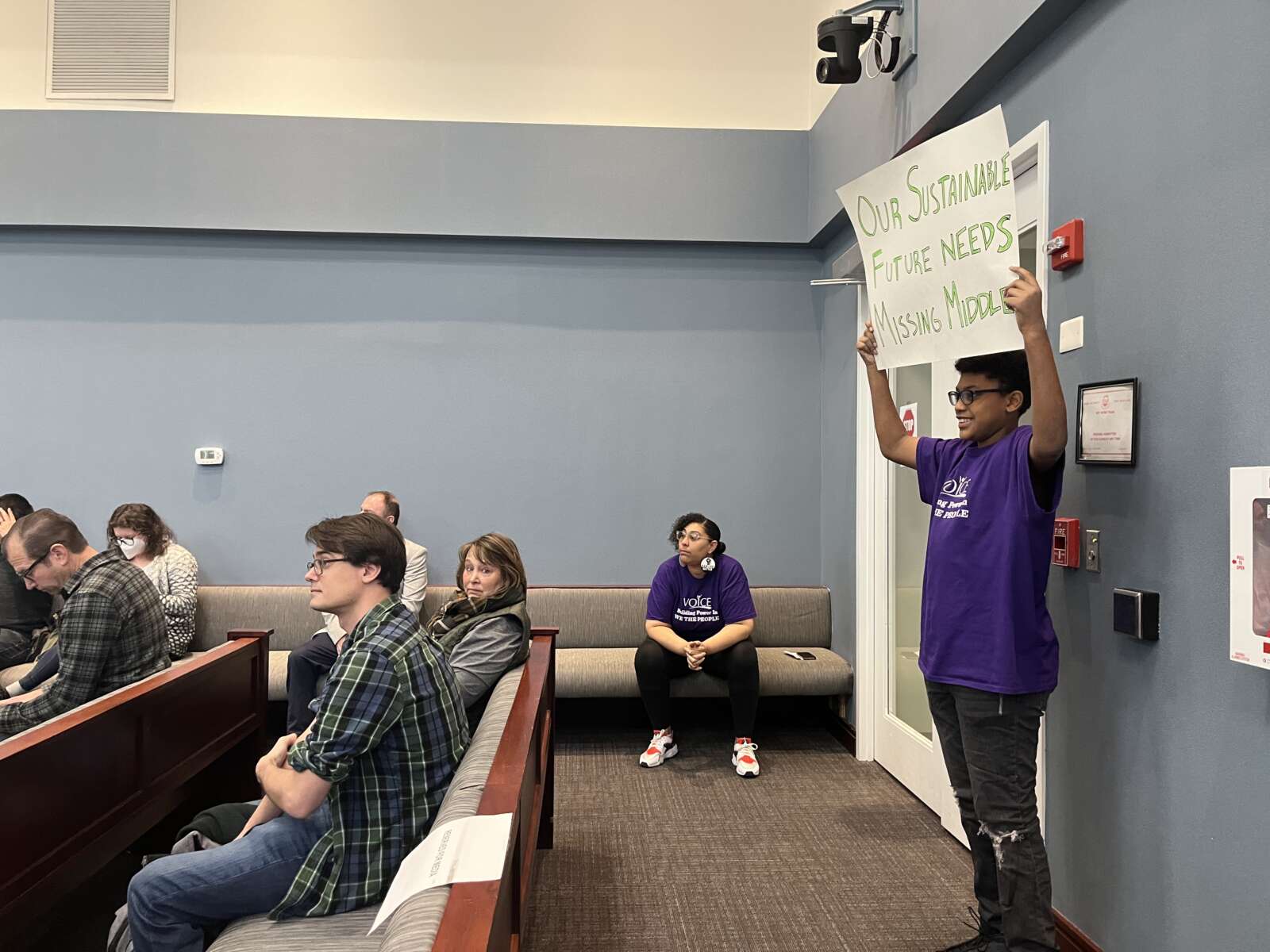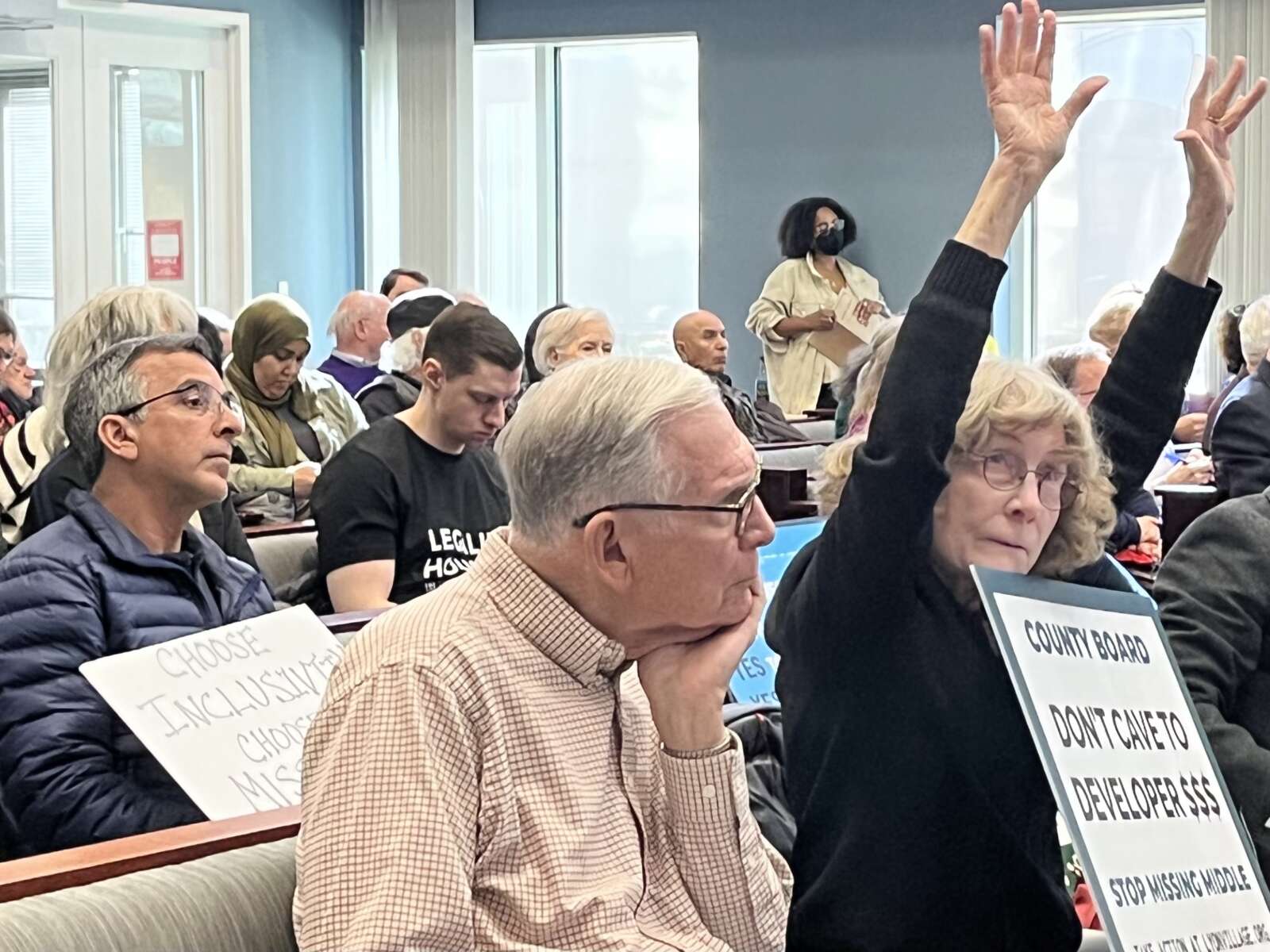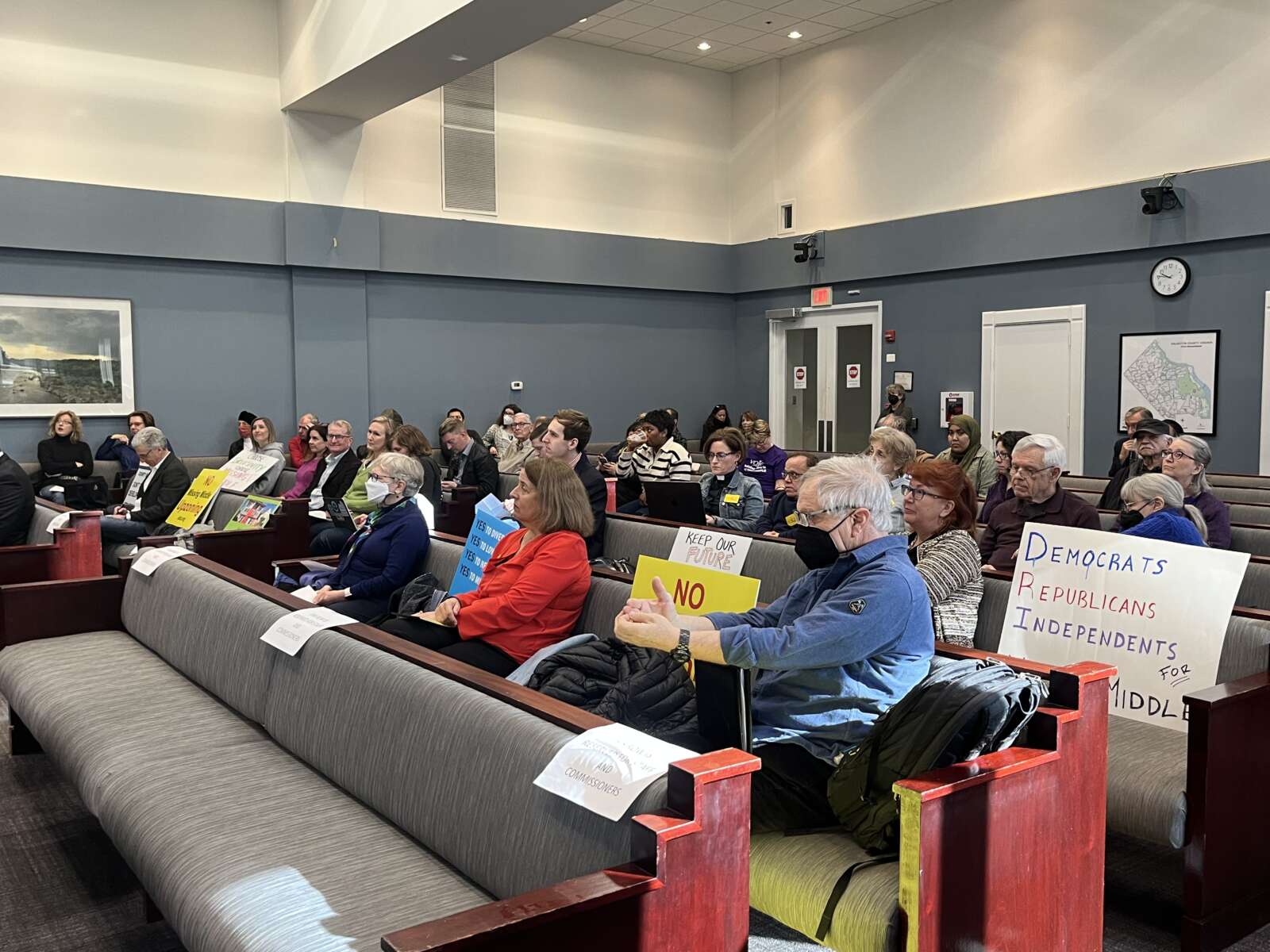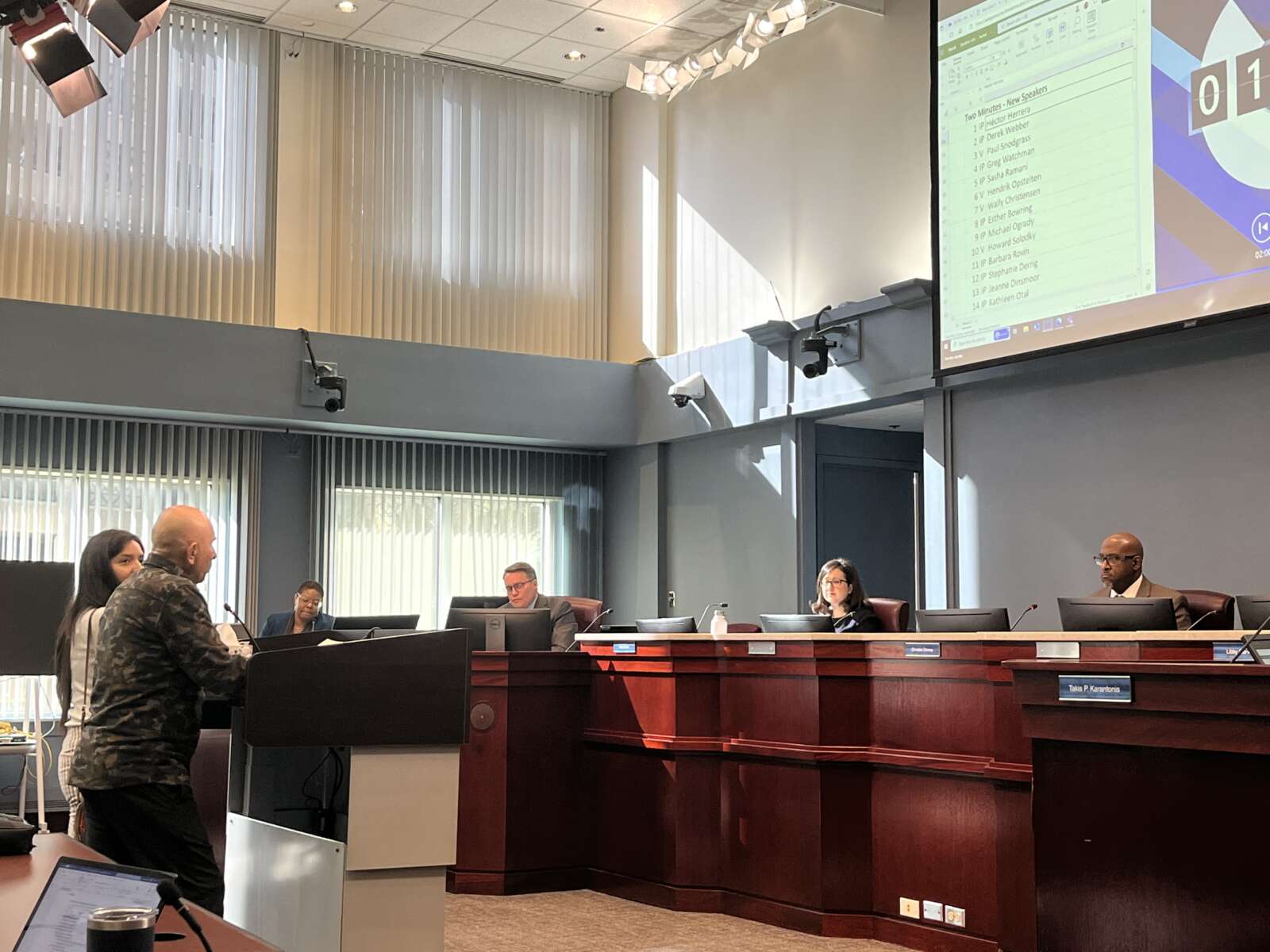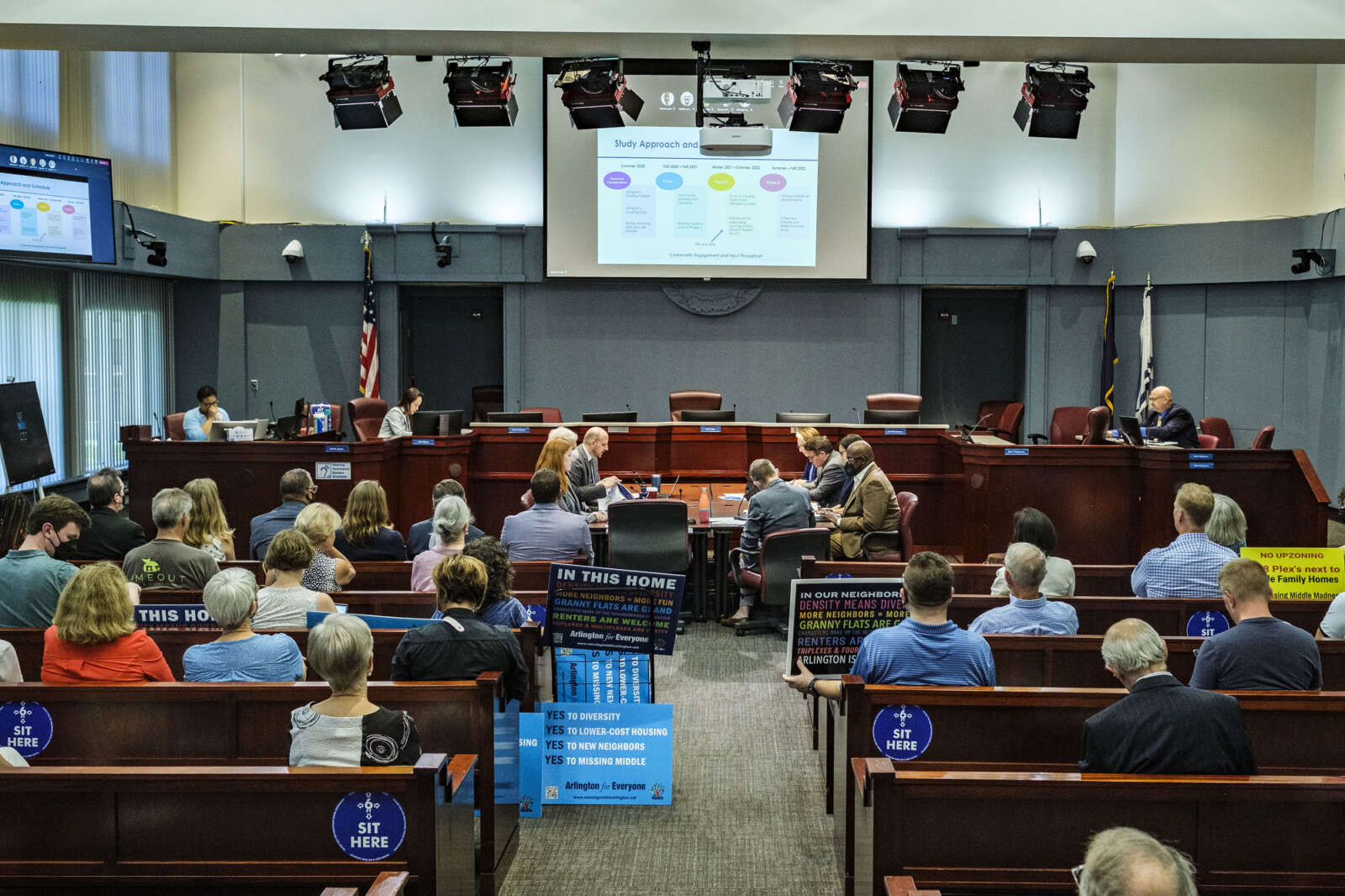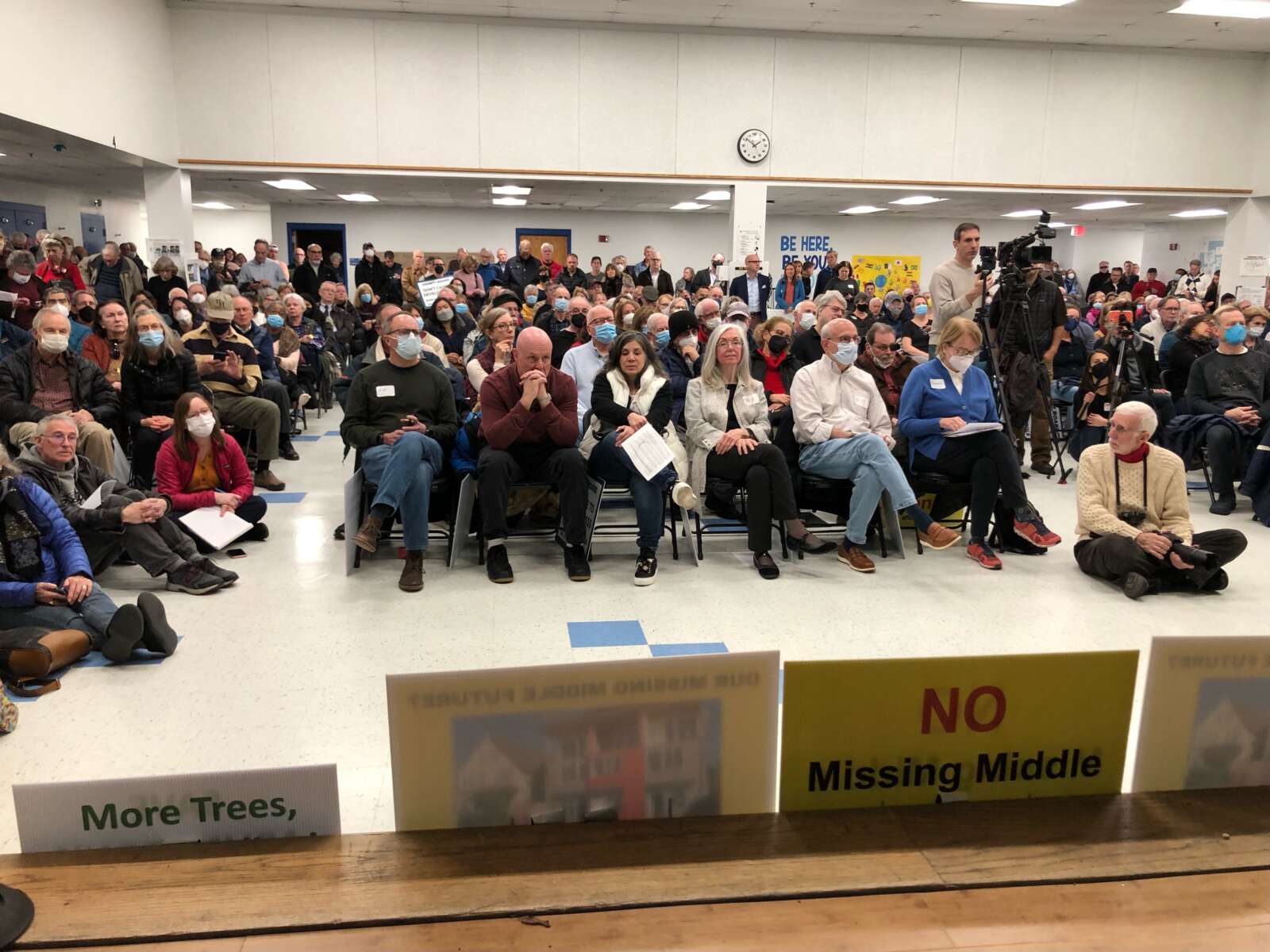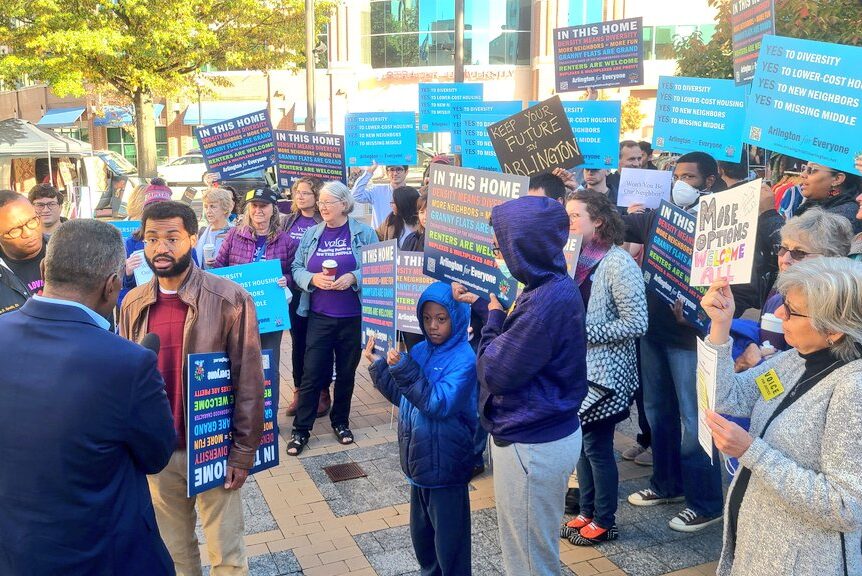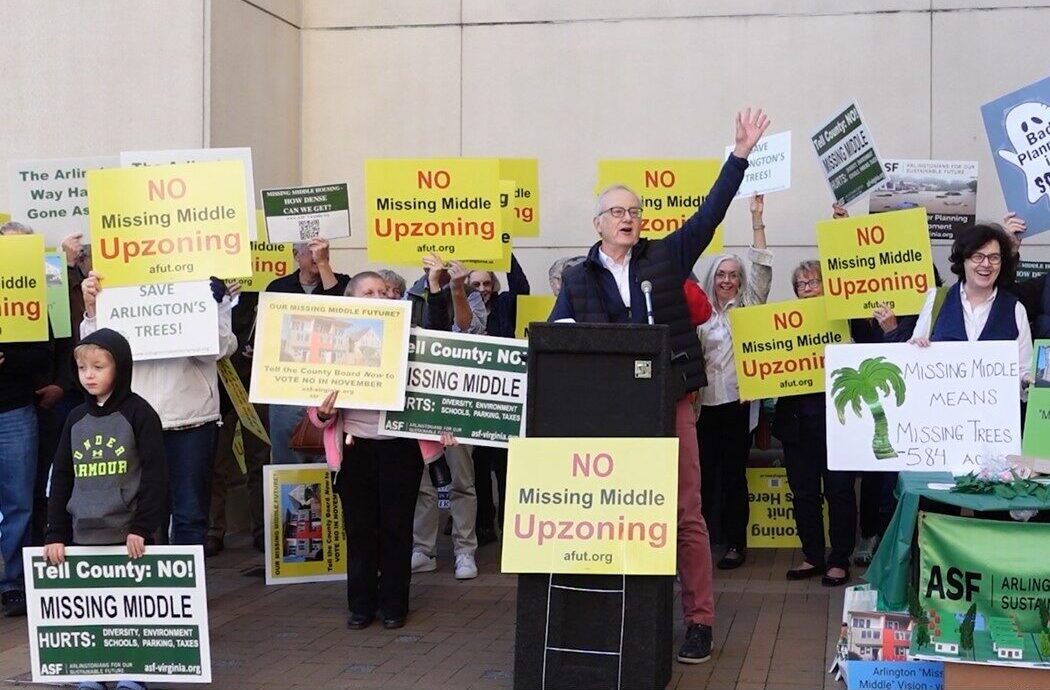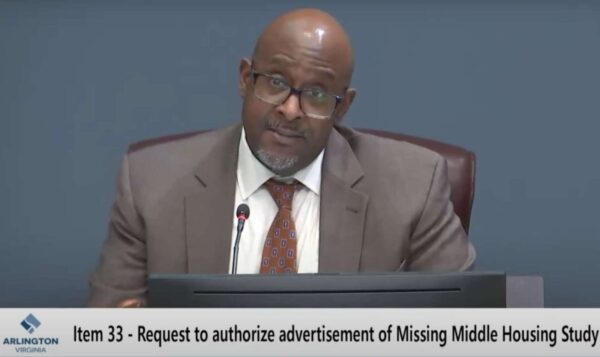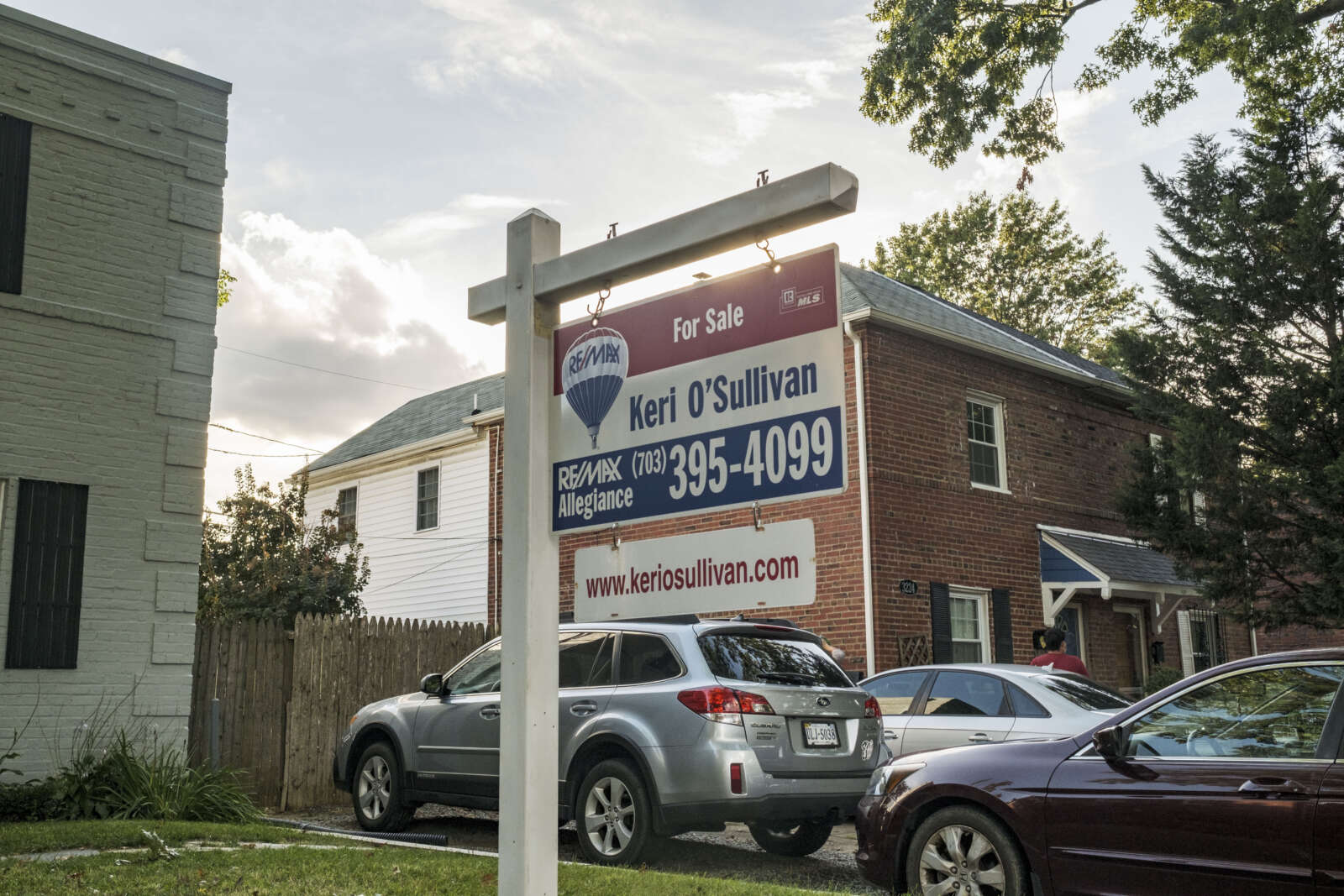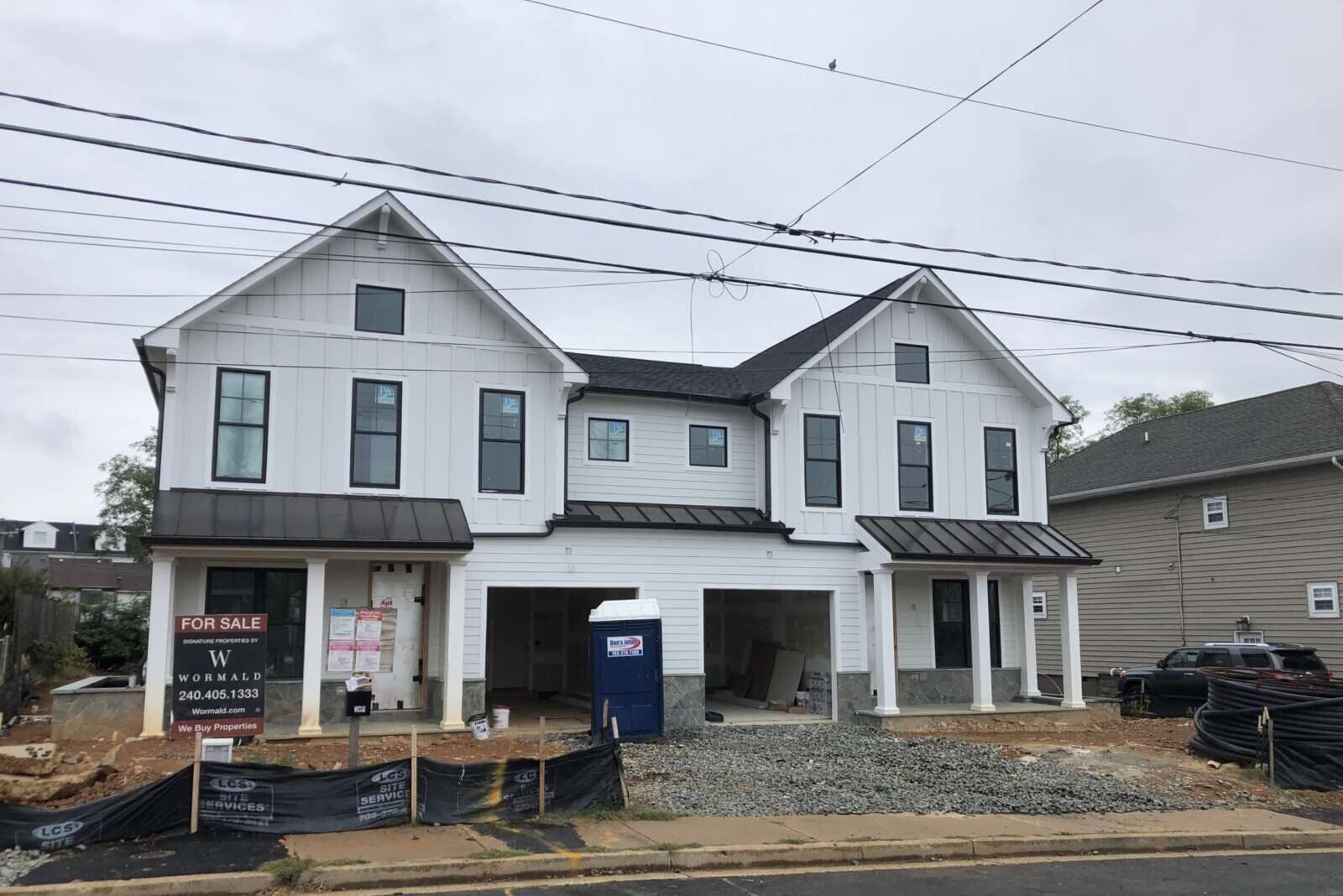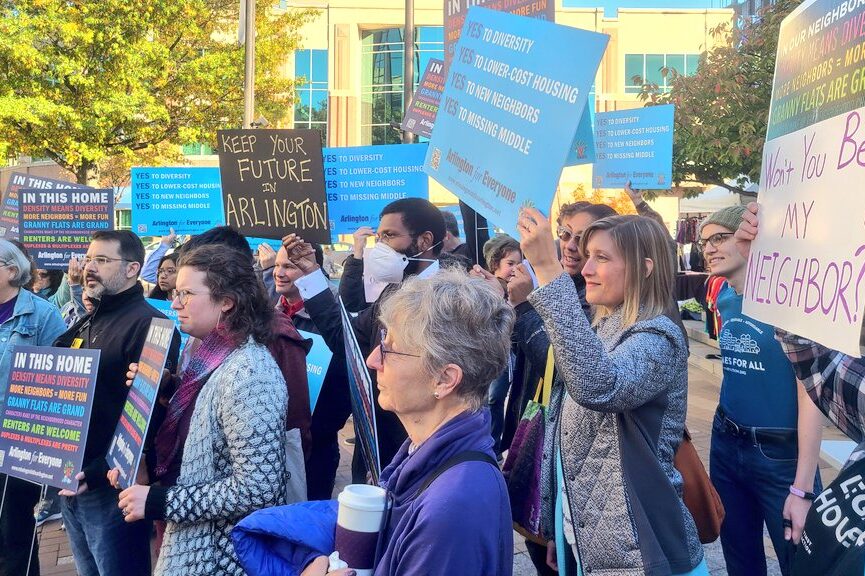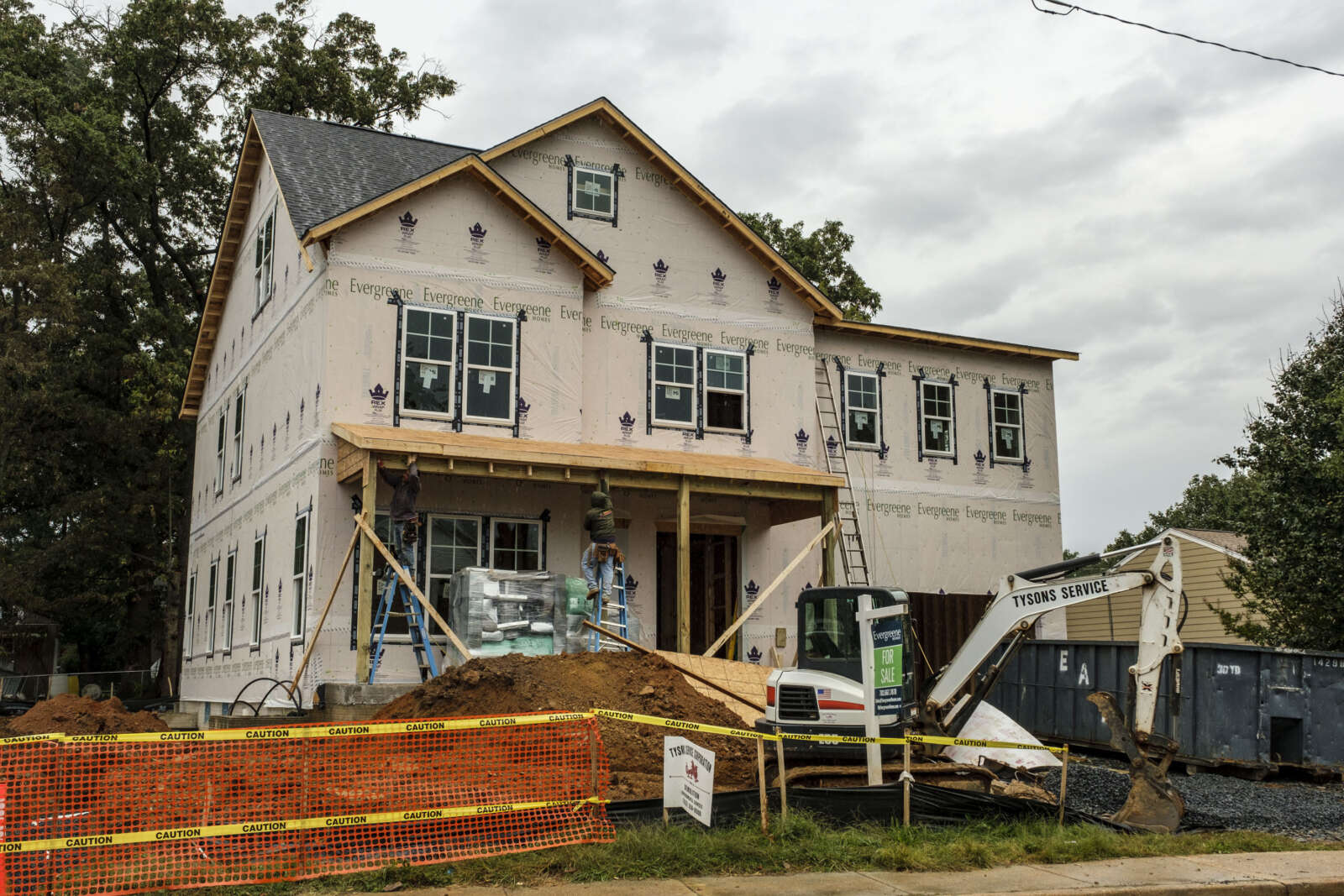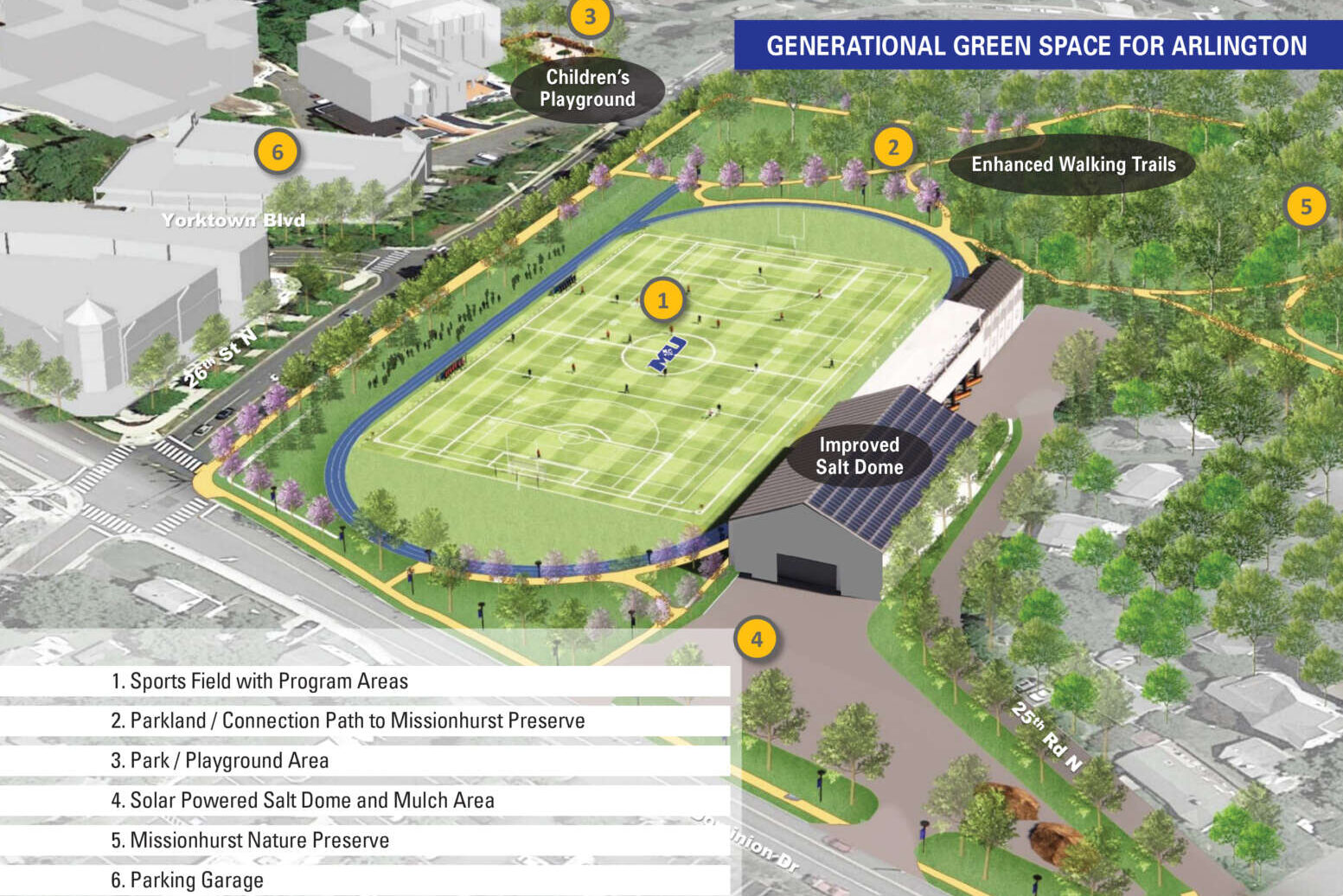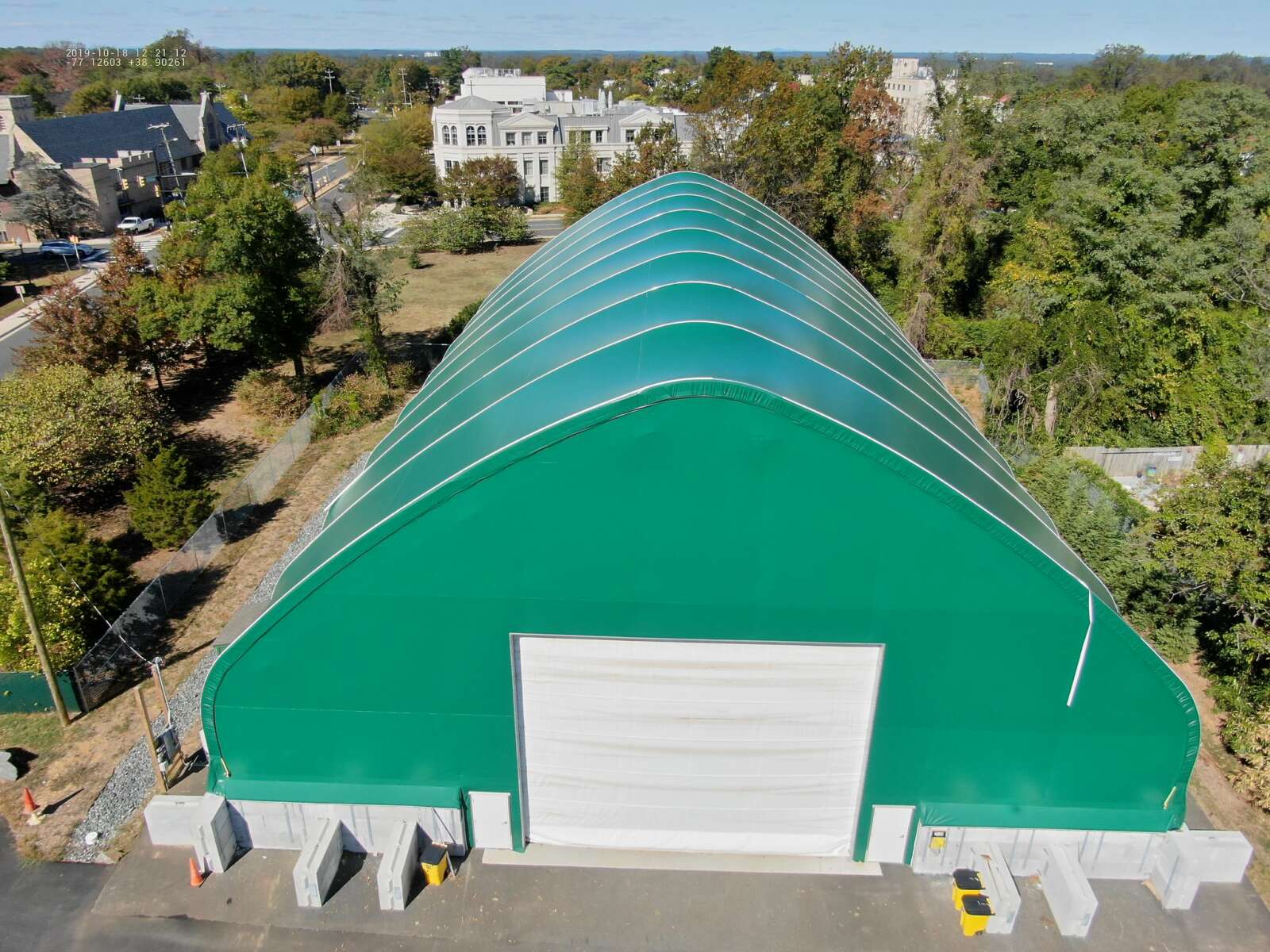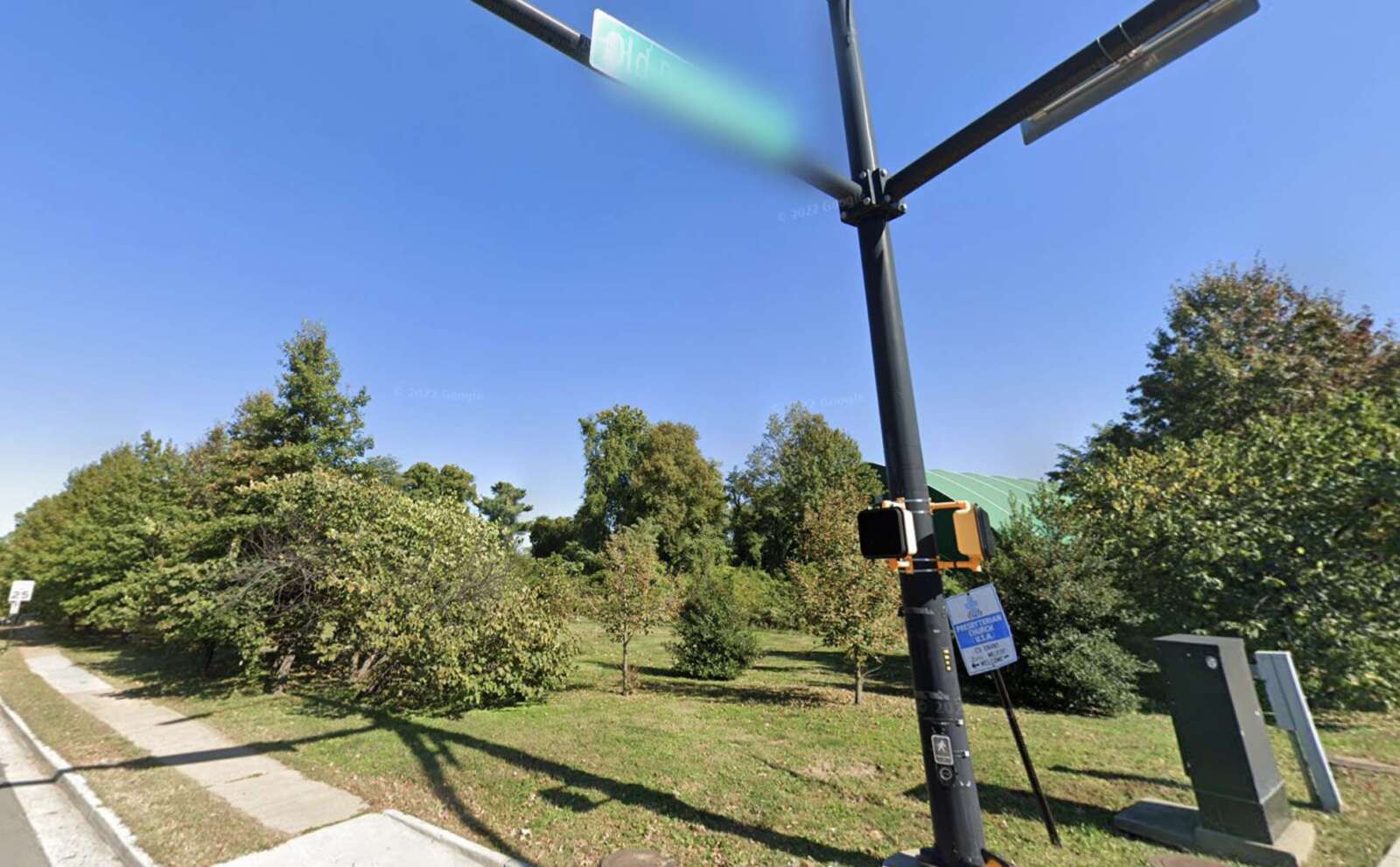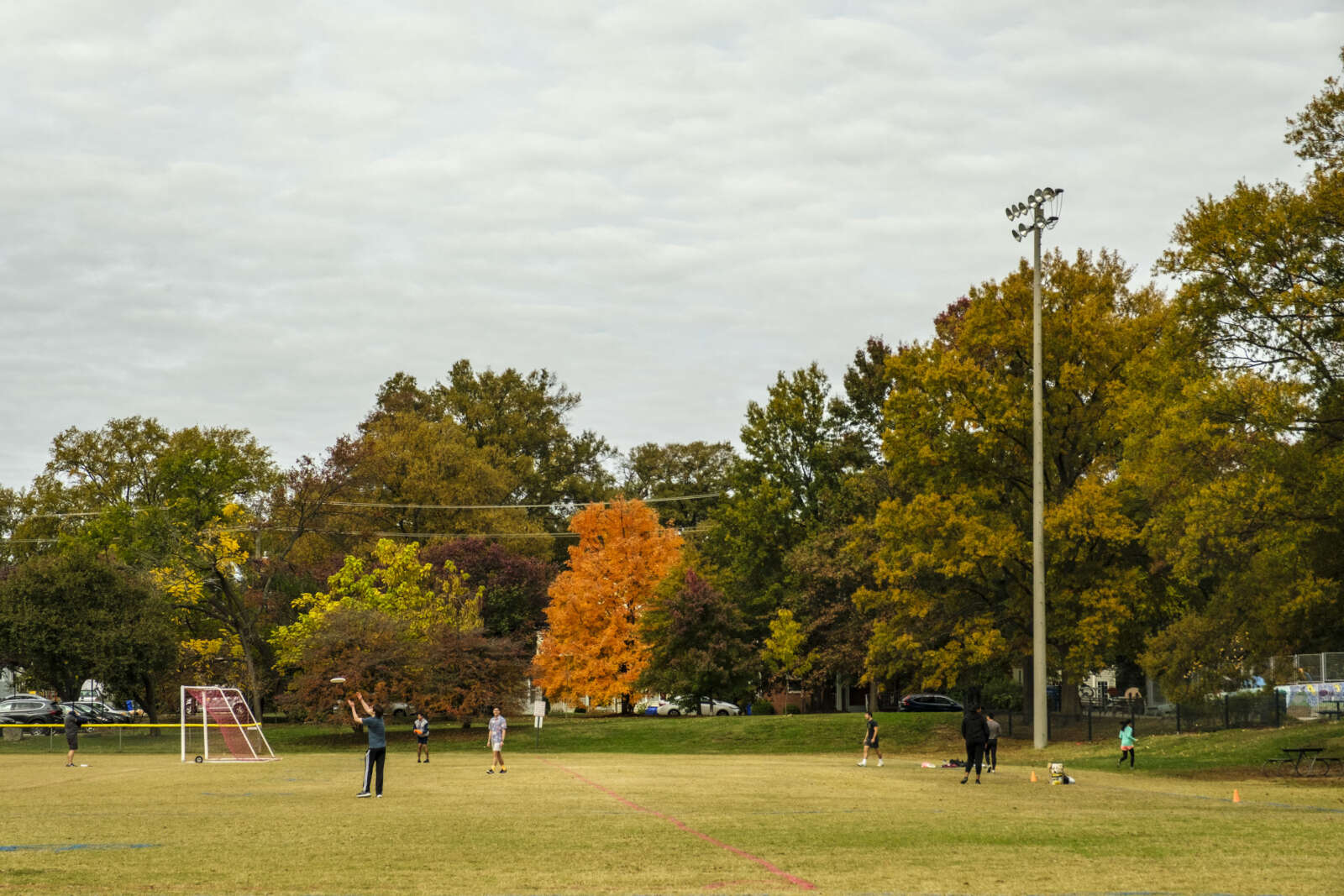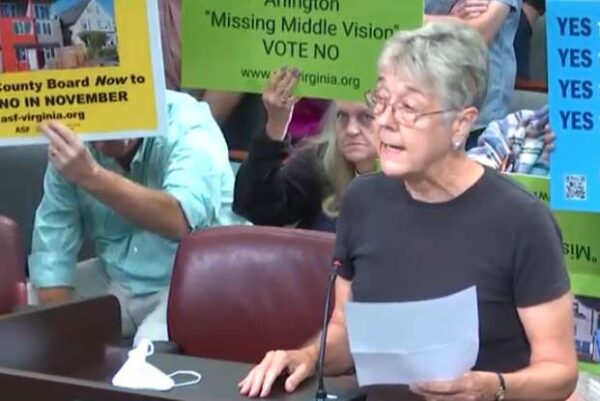Today, Wednesday, could be the day that the Arlington County Board allows the by-right construction of 2-6 unit homes in the county’s lowest density neighborhoods.
The scheduled vote on proposed zoning amendments, known by the shorthand Missing Middle or Expanded Housing Options, would culminate nearly a year of intense discussion since a draft was published in May and updated in November, and before that, more than a year of study and public engagement.
Ahead of the Board’s vote, more than 250 people signed up to urge the Board to move forward with the most expansive options, build more consensus by making a few tweaks, or reject the proposal altogether. The long list of speakers led the County Board to dedicate its regular meeting Saturday and carryover meeting Tuesday to hearing public comment, pushing the vote to today.
On Saturday, about 200 people spoke during the marathon meeting that went from around 8:30 a.m. to just before 6 p.m.
Of the 204 speakers who took the podium on Saturday, some 57% were in favor of the zoning changes, according to a spokesman for YIMBYs of Northern Virginia, an advocacy group supporting the change. At the conclusion of Tuesday night, 226 people had spoken across the two days of hearings, of whom nearly 54% were in favor.
About 50 speakers in support outnumbered about 20 opponents during Planning Commission hearings earlier this month, per commissioner Daniel Weir.
Representatives from the Planning, Transportation and Housing commissions, as well as the Disability Advisory Commission, all voiced strong support for the proposal. By another metric, more than 6,000 people have signed a petition against the proposal as of Tuesday night.
On Saturday, a number of renters and homeowners shared their personal stories of saving — or trying to save– enough money to buy a home in Arlington to underscore the stakes of the changes.
Proponents said more people would have the option to stay in Arlington with Missing Middle housing allowed throughout the county. Opponents disputed how helpful it would be, with some predicting surging property values should the zoning changes be approved. Other opponents predicted the dwellings would deflate property values and jeopardize their long-term investments.
Through an interpreter, Héctor Herrera urged the Board to allow Missing Middle to give Hispanic residents more home-buying opportunities. He and his wife tried twice, unsuccessfully, to buy in 2010 and then in 2016, while working two jobs and even with the help of their adult children.
“Since I came to the U.S. — and I thank God for this wonderful country — I have worked this whole time in the construction industry in Arlington,” Herrera said. “I’ve seen how much it costs to build a house that costs more than $1 million. My community that represents 20% of Arlington cannot buy a house.”


